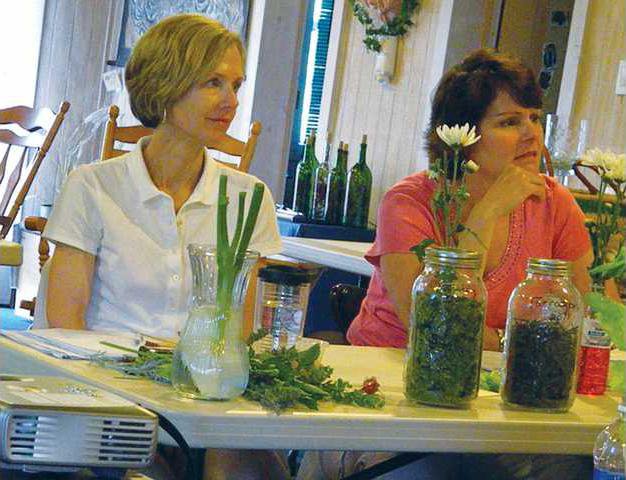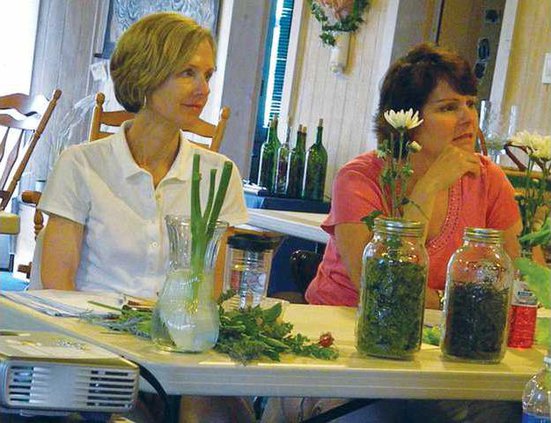While their students are settling into the lazy days of summer vacation, a group of area teachers have taken on new roles as pupils in the Summer Master Gardener Program for Educators. "We’re learning how different gardening methods can translate into teaching opportunities," said Jan Davis, of Coal Mountain Elementary School in Cumming. The workshop was held at the Cedar Hill Enrichment Center in Gainesville. For one of the exercises that the educators will take back into their classrooms, they placed celery, onions and mums into water bottles filled with colored water. As the class time progressed, the teachers tracked the dyed water’s progress up the plant from the root. According to Crystal Lee, another Coal Mountain educator, the experiment serves as a visual aid to help students understand how plants take in their nutrients, and even contaminants that are found in the soil. The teachers also learned about composting — which is a lesson in the cycle of life — and garden bugs, a lesson in entomology. Dennis Whittle, a Forsyth County Master Gardener and retired teacher, also gave the instructors an introduction to organic gardening. Starting classroom-based gardens without the use of synthetic pesticides and herbicides not only produces healthier foods, it also teaches children a lesson about sustainability, Whittle said. "When you grow food in a sustainable fashion — putting nutrients back into the soil, rotating crops and reducing waste — you can go back year after year and plant," Whittle said. According to Kat Stratton, Cedar Hill director, teaching students sustainable gardening methods also helps them to become more responsible and conscious citizens. "Sustainability is the current generation’s ability to meet their needs without compromising the abilities of future generations to do the same," Stratton said. Throughout the workshop, which began on June 6 and concludes Thursday, participants learned different ways to integrate gardening lessons into their everyday curriculum. "Gardening incorporates literature, science, math, social studies and math. In Georgia, they call that cross-curriculum teaching," said Linda Garner, a Cumming Elementary School teacher. "It helps to show students how what they’re learning in the classroom plays out in real life. If you can make that connection from classroom to real life, it makes the students more well-rounded." Gardening not only builds students’ general knowledge base, it also stimulates their senses. "When we teach, our goal is to bring in all of their senses," said Carla Reid, who also teaches at Cumming Elementary. "If you teach to all of their senses, they’re more likely to learn and remember the material."
Gardening course for educators utilizes multiple subjects to engage students

